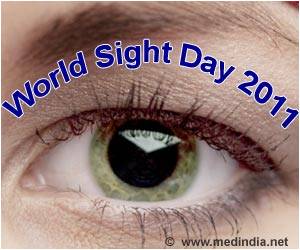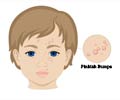A type of herpesvirus infection of the eye is associated with neovascular age-related macular degeneration (AMD), a disease that causes blindness in the elderly.

With the formation of new blood vessels, retinal tissue destruction occurs, leading to the development of "wet" AMD and eventually, vision loss and blindness. The results were published in PLoS Pathogens, a journal of the Public Library of Science.
"Prior to this work, cofactors for the development of AMD included genetics, a high fat diet and smoking. Now, we are adding an infections agent as another cofactor," said Richard D. Dix, professor at the Georgia State Viral Immunology Center's Ocular Virology and Immunology Laboratory.
The research team includes Dix, Scott W. Cousins, Diego G. Espinosa-Heidmann, Daniel M. Miller, Simone Pereira-Simon, Eleut P. Hernandez, Hsin Chien and Courtney Meier-Jewett.
Affiliated research institutions include the Duke University Eye Center, the Bascom Palmer Eye Institute of the University of Miami Miller School of Medicine, the Viral Immunology Center at Georgia State, and the Department of Ophthalmology at the Emory University School of Medicine.
Human cytomegalovirus is a common herpesvirus, said Dix, who is also an adjunct professor of ophthalmology at the Emory University School of Medicine. About 80 percent of the population is estimated to have antibodies for the virus, and it is often acquired during childhood.
Advertisement
Identifying human cytomegalovirus as a cofactor in the development of AMD opens up new paths for the treatment of AMD, Dix said. One route could include reducing the viral load – the amount of the human cytomegalovirus in the blood stream – by treatment with an antiviral drug known as ganciclovir.
Advertisement
"If we can knock down a certain gene or genes of the virus that stimulates VEGF production, we might be able to decrease it production and minimize AMD," Dix said.
Source-Eurekalert















